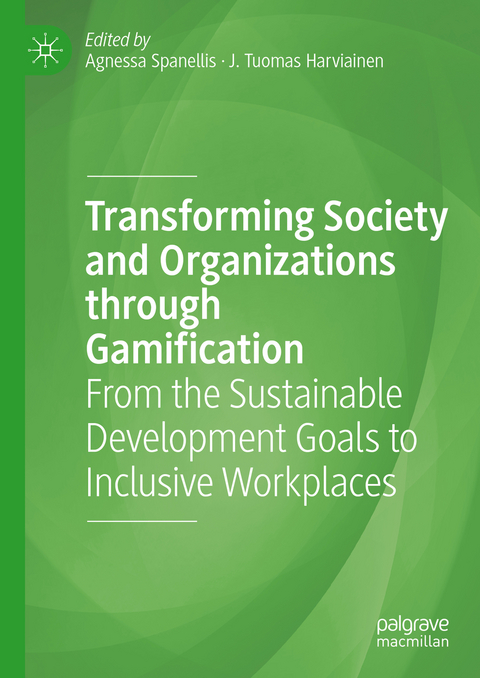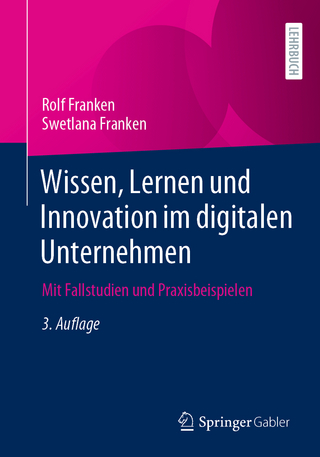
Transforming Society and Organizations through Gamification
Springer International Publishing (Verlag)
978-3-030-68206-4 (ISBN)
Gamification is the application of game-design elements and game principles to non-game contexts, and has been used to solve problems by applying characteristics of games. Though it has principally been applied in the areas of business and education, this book seeks to expand focus beyond this, looking at how gamification can be used for social change, the development of organizations and the implementation of the UN Sustainable Development goals.
Including contributors from across the glove, it draws on a rich array of case studies, from inclusivity in the workplace to ecosystems in the Amazon. A timely contribution to an exciting, growing field, this book engages with the theoretical framework and lays out the foundations for a rigorous theory-based stream of research. It will be valuable reading to scholars and practitioners interested in social change, sustainability, gamification and organizational studies.
Agnessa Spanellis (PhD, MEng) is an Assistant Professor at Heriot-Watt University, Scotland and a member of the Research Centre for Logistics and Sustainability at Edinburgh Business School, leading research on gamification for sustainable development and exploring how gamification can improve social and environmental sustainability, especially in more deprived and impoverished communities in low-income counties.
J. Tuomas Harviainen (PhD, MBA) works as Associate Professor of information Practices at Tampere University, Finland. Harviainen's work ranges from information sharing in creative organizations to games and gamification. He firmly believes that good research can also be a form of societal activism.Agnessa Spanellis is an Assistant Professor at the School of Business Management, Heriot-Watt University. Her research interests are focused on the use of Games and Gamification for behavioral change, and improving organisational performance. She has set up a gaming research centre (GIECS) at Heriot-Watt University. Her latest projects include facilitating collaboration in the cooperatives of small farmers in Brazil and improving dissemination of information and resources among volunteers in the event of a volcanic eruption in rural areas of Indonesia.
J. Tuomas Harviainen is Associate Professor of Information Practices at Tampere University, Finland, and one of the editors of the journal Simulation & Gaming. His work has been published in venues such as Organization Studies, New Media & Society, Journal of Business Ethics, Technology & Culture, and Journal of Documentation.
Introduction.- Intro: why gamification is relevant.- Getting participants.- Social lens.- Peace-making.- Livelihood of smallholder farmers.- Refugee integration.- Community resilience.- Social Impact of gamified education.- Inclusivity in the workplace.- Environmental lens.- Ecosystems.- Reduction of carbon emissions.- Disaster prevention and awareness.- Public transportation.- Economic lens.- Gamification for social enterprises.- Ethical finance (CU).- Suitability for public organisations.- Financial education for economic sustainability.- Youth employment.- Family wellbeing in disadvantaged areas.- Conclusions.- Relevance of gamification: a critical review.
| Erscheinungsdatum | 09.05.2021 |
|---|---|
| Zusatzinfo | XIV, 386 p. 53 illus. |
| Verlagsort | Cham |
| Sprache | englisch |
| Maße | 148 x 210 mm |
| Gewicht | 647 g |
| Themenwelt | Wirtschaft ► Betriebswirtschaft / Management ► Unternehmensführung / Management |
| Schlagworte | business for society • Corporate Social Responsibility • Diversity • Empowerment • Inclusion • social change • sustainability |
| ISBN-10 | 3-030-68206-4 / 3030682064 |
| ISBN-13 | 978-3-030-68206-4 / 9783030682064 |
| Zustand | Neuware |
| Haben Sie eine Frage zum Produkt? |
aus dem Bereich


